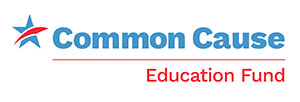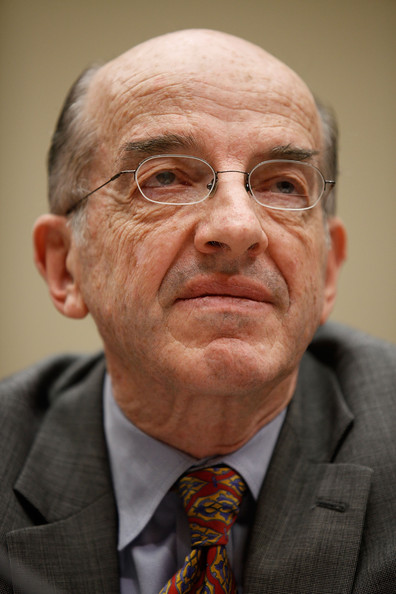Kudos on Broadband but a Long Way to Go on Communications

Thursday, November 11, 2021
Digital Beat
Kudos on Broadband but a Long Way to Go on Communications

Passage of the Infrastructure legislation late last week was truly historic—surely the biggest boost ever to bringing high-speed broadband to every American household. To those of us who have been pushing for this kind of broadband priority for more than two decades, there is much to cheer. President Biden and all those in Congress who worked so hard to achieve passage have made a major contribution to the common good. This bill won’t finish the job of broadband deployment and adoption, and its ultimate success will be determined by how it is implemented, but it’s one giant leap for America.
While we get about the job of building broadband, we need to take up other communications issues that have been of even longer gestation and which have just as much, maybe more, urgency for our country. One year after the 2020 elections, we should be seeing substantive results on issues like net neutrality, platform accountability, media ownership reform, consumer privacy protections, restoring public interest oversight to telecom and media, and the pernicious mis- and dis-disinformation which are bleeding our democracy.
At a minimum, the U.S. Senate should have confirmed many more of the President’s nominees to agencies charged with broad responsibilities for public interest oversight. But thanks to a few hyper-partisan Senatorial stalwarts who block nominees from being confirmed, there is a leadership gap across much of government. It’s not just in one or two agencies, either. Cabinet-level departments cannot manage their responsibilities without assistant secretary and other positions being fully staffed. This goes beyond domestic policy—how can our country conduct its diplomacy when so many ambassador posts lie vacant? The tradition of one Senator being able to sidetrack a nomination via a “hold” is outrageous and should be abolished.
We all know that major culprits in slowing progress are a divided 50-50 Senate with little incentive to compromise and an opposition party that at best plays an obstructionist role to sabotage the President’s agenda and at worst seeks to undermine democracy itself. It’s not a good recipe for overcoming the many challenges our nation confronts. Another sad result of this deadlock is conferring too much power on office-holders who were not elected to wield so much power. My late friend Senator Fritz Hollings used to say that as every Senator looked in the bathroom mirror each morning, they saw a President of the United States. It must take an incredible amount of hubris for one or two members of Congress to think that they alone, after months of discussion and against urgent needs, are empowered to dictate the future of the country. (It does, however, underline the difference that one vote can make, something we should all remember as we decide whether we will even bother to go the polls on Election Day.)
A less obvious culprit is much of the mainstream media. Too often their interest doesn’t go beyond highlighting the latest political polls and emphasizing the horse race aspects of every campaign. It’s all about infotainment and treating politics as a spectator sport to enhance ratings, rather than encouraging journalism that digs deeper, actually informs people about what’s going on, and encourages civic participation in organizing and voting and in what happens after the voting is over. More media coverage is also needed on the role that special interests and powerful lobbies play in fashioning legislation. Millions upon millions of dollars are being spent to make sure industry and finance are taken care of in any bills that pass. I believe that more money is being spent on lobbying right now than ever in our history. My colleagues at Common Cause recently compiled a study on the extent of special interest contributions in lobbying by internet service providers. It’s an eye-opener. And that’s just one sector of the economy!
It’s too bad that mainstream media doesn’t give this massive and democracy-destroying lobbying the coverage it merits. The major reason they don’t is that much of this media has been consolidated and corporatized, and their financial interests are not so different from other special interest businesses. Their lobbying and campaign contributions are directed more toward their own interests than those of the consuming public. Us.
So, where are we as of November 2021? We are told by self-anointed savants that the November 2 elections spell doom for meaningful progress. All is lost, they say; the country has turned radically right; and we had best prepare ourselves for two more years of gridlock, followed by the revenge return of the Trumpites.
I demur. We are barely ten months into an Administration that has more than three years to run. Many important non-legislative actions have been taken by the Biden Administration. Some, like tackling the coronavirus pandemic, are admittedly well-known. But dozens of others have not received the attention they merit. Scores of backward-looking executive actions the previous Administration took have been repealed and replaced by far-reaching steps forward on the economy, environment, education, voting rights, civil rights, women’s rights, health care, labor, ethics, and more. Maybe the country would feel better about itself if more people knew about these initiatives.
And just last week, after months of tortuous discussions and seemingly endless meetings, the by-now famous infrastructure legislation was passed. It took much longer than it should have and there was a lot of political grandstanding, but it finally got done. That still leaves the Build Back Better bill to be dealt with, but it was major progress nevertheless. And once the Build Back Better legislation is finished, perhaps we can get on with the many other challenges confronting our government and our country.
High on my list is media reform. I have written before in this space about the need for comprehensive action to provide us with the news and information that citizens in a self-governing society must have if they are to redeem the promise of democracy. I have suggested action on four fronts.
First, anti-trust. The giants who control both traditional media (radio, tv, cable and newspapers) and online media (Facebook [soon to be Meta], Google [a.k.a. Alphabet], Apple, Amazon, et al.) wield more power and influence than any business should be permitted to deploy in a democratic society. They are too big, too powerful, too much.
Second, public interest oversight. Industry is not going to fix itself. I have to laugh when I see those Facebook ads talking about how the country needs updated internet regulations. What Facebook wants is to control any legislation that is introduced and to make sure it protects its own proprietary interests. We had some actual public interest oversight for telecom and traditional media for years, although it’s been mostly abolished by previous Federal Communications Commissions under Presidents Reagan, the Bushes, and Trump. We must restore and expand this oversight and develop such obligations for online media, too.
Third, public media. It’s increasingly clear that commercial media alone are not able to provide the news and information that citizens need. While I strongly support finding ways to reinvigorate them and to encourage local community media, there is an urgent need for a robust public media system to add depth and breadth to our communications infrastructure. Public and community media have long been our news and information jewel. But they are under-funded and simply lack the resources to do the job we need for them to do. For years Congress has fought over whether to zero out funding for public media or keep it at the paltry levels it currently receives. We need to be talking about a truly significant boost to the public media budget.
Fourth, media literacy. We are being “played” by so much of mainstream media and bombarded by Everest-high mountains of mis- and dis-information. We need a major program in our schools to teach our kids and grandkids how to make productive use of their online experiences. They need to know not just how to use online technology, but how to tell an untrustworthy from a trustworthy site and how to differentiate between real information and mis-information. We should immediately develop an online K-12 program that schools would be able to use now, and meanwhile we must get on with teacher training and adjusting our school curricula to make this education available to everyone.
I remain hopeful that we can use the next three years to develop and deploy a meaningful media reform program, perhaps patterned after what I have proposed. The new Federal Trade Commission is taking positive steps on consumer protections already, and a full-strength Federal Communications Commission will hopefully be in place within weeks to build back and expand the authorities it once possessed. We have lost time but we still have time.
I’ve said it many times and I’ll say it again: democratic reform depends upon media reform.
Michael Copps served as a commissioner on the Federal Communications Commission from May 2001 to December 2011 and was the FCC's Acting Chairman from January to June 2009. His years at the Commission have been highlighted by his strong defense of "the public interest"; outreach to what he calls "non-traditional stakeholders" in the decisions of the FCC, particularly minorities, Native Americans and the various disabilities communities; and actions to stem the tide of what he regards as excessive consolidation in the nation's media and telecommunications industries. In 2012, former Commissioner Copps joined Common Cause to lead its Media and Democracy Reform Initiative. Common Cause is a nonpartisan, nonprofit advocacy organization founded in 1970 by John Gardner as a vehicle for citizens to make their voices heard in the political process and to hold their elected leaders accountable to the public interest. Learn more about Commissioner Copps in The Media Democracy Agenda: The Strategy and Legacy of FCC Commissioner Michael J. Copps
The Benton Institute for Broadband & Society is a non-profit organization dedicated to ensuring that all people in the U.S. have access to competitive, High-Performance Broadband regardless of where they live or who they are. We believe communication policy - rooted in the values of access, equity, and diversity - has the power to deliver new opportunities and strengthen communities.
© Benton Institute for Broadband & Society 2021. Redistribution of this email publication - both internally and externally - is encouraged if it includes this copyright statement.
For subscribe/unsubscribe info, please email headlinesATbentonDOTorg






